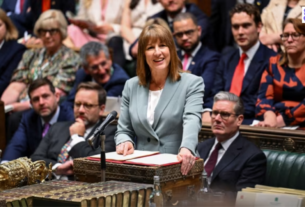With the 8th Central Pay Commission (CPC) looming on the horizon, anticipation is running high among India’s 1 crore+ central government employees and pensioners. For Level 1 employees including clerks, peons, and Multi-Tasking Staff (MTS) the next CPC is more than just another pay revision; it represents the potential for financial upliftment and improved quality of life.
While the Commission is officially slated for implementation on January 1, 2026, delays in its constitution have led to widespread speculation that its recommendations may only materialize by early 2027. Nonetheless, expectations are already taking shape and they’re substantial.
Why Level 1 Employees Are Watching Closely
Level 1 employees currently serve on the lowest rung of the pay matrix, drawing a starting basic pay of ₹18,000 under the 7th CPC. Despite their modest pay grade, their work is indispensable to the smooth functioning of government offices across India. From maintaining records to ensuring day-to-day operations, their role is often underappreciated but always critical.
The 8th Pay Commission offers a rare opportunity for this workforce segment to see a significant, long-overdue salary revision.
Expected Salary Hike: How Much Could It Rise?
If the fitment factor, a key multiplier used to determine pay revisions is increased from the current 2.57x to a proposed 3.68x, Level 1 employees could see their basic salary jump to between ₹23,000 and ₹26,000.
Estimated Salary Structure Post 8th CPC:
| Component | 7th CPC | 8th CPC (Expected) |
| Basic Pay | ₹18,000 | ₹23,000 – ₹26,000 |
| Dearness Allowance (50%) | ₹9,000 | ₹11,500 – ₹13,000 |
| House Rent Allowance | ₹4,320 – ₹5,400 | ₹5,520 – ₹6,500 |
| Total Gross Monthly Salary | ₹31,320 – ₹32,400 | ₹40,020 – ₹45,500 |
Final figures may vary based on DA rates, city classification, and commission recommendations.
Delay in Commission Formation: A Cause for Concern?
Traditionally, Pay Commissions are set up two years in advance of their scheduled implementation. However, as of now, the 8th CPC has not been formally constituted. Sources suggest that administrative delays, possibly tied to the upcoming Lok Sabha elections and economic restructuring, could result in postponement to 2027.
Government employee unions have already begun to pressurize the Centre for a timely announcement and inclusion of long-standing demands, such as:
- Higher fitment factor
- Revised pension formulas
- Inflation-linked pay adjustments
Beyond the Numbers: The Human Impact
For Level 1 employees, a revised pay scale means more than just higher take-home salaries. It directly affects:
- Retirement benefits and pensions
- Loan eligibility and credit access
- Education and healthcare affordability
- Overall living standards
In many cases, the hike could mean the difference between financial stress and stability especially for those supporting families on a single income.
The Future of Pay Commissions: Is This the Last?
There is increasing discourse among policymakers about moving away from decade-based Pay Commissions toward a dynamic, inflation-linked salary adjustment model. However, such systemic shifts remain on the drawing board. For now, the 8th CPC continues the traditional legacy one that many believe is overdue for a modern, more equitable update.
What Should Employees Do Now?
With uncertainty around the timeline, here’s how employees can stay prepared:
- Keep abreast of official updates from the Ministry of Finance and Department of Personnel & Training (DoPT)
- Consult union representatives to ensure their concerns are tabled in pre-commission deliberations
- Review existing pay slips and grade pay levels to anticipate changes
Final Word: Hope, Caution, and Expectation
While the 8th Pay Commission is still in its early stages, it is already stirring hope and optimism among India’s lower-tier government workforce. The expected salary revisions could reshape the financial landscape for thousands of families who have long waited for meaningful change.
If implemented fairly and efficiently, the 8th CPC could mark a defining moment for equity in public service compensation and deliver long-overdue recognition to the silent workforce that keeps the government running.




